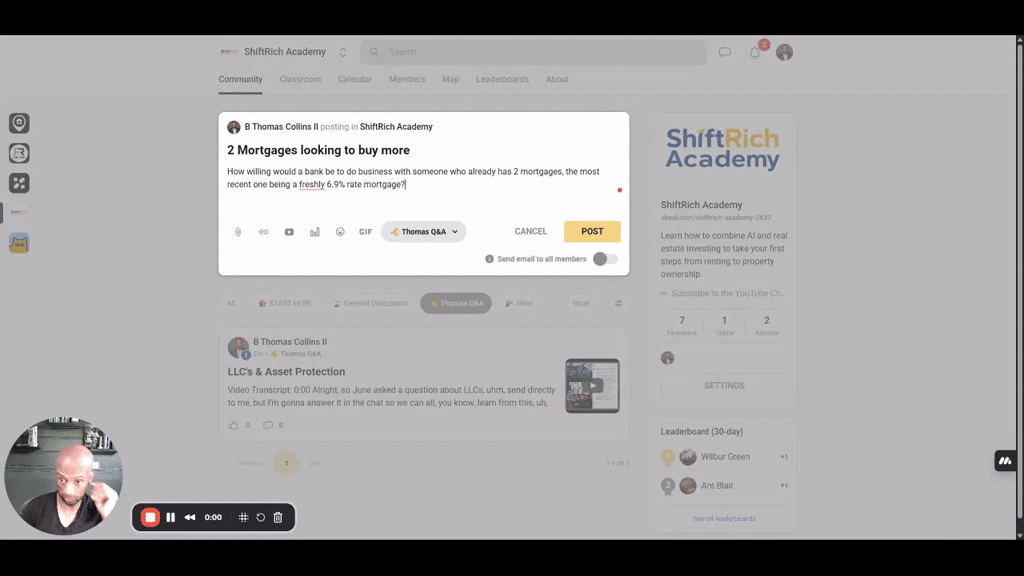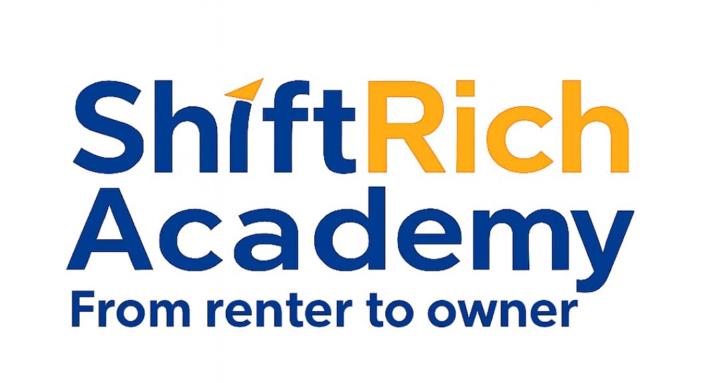
Write something
How do LLC owners pay themselves?
LC owners primarily pay themselves through what is called an owner's draw or owner's distribution. This method is crucial for maintaining a clear separation between personal and business finances, which helps prevent legal issues related to co-mingling funds. Here's a detailed breakdown of how LLC owners pay themselves: • Understanding an Owner's Draw: An owner's draw involves the business owner withdrawing money from the business's bank account and transferring it to their personal account for personal use. Unlike a traditional employee salary, LLC owners do not have to pay themselves a set salary; they have the flexibility to decide the intervals and amounts of these distributions, and they do not have to be even or fixed. • Steps to Take an Owner's Draw: 1. Obtain an EIN (Employer Identification Number): This is a nine-digit number assigned by the IRS to track your business for tax purposes. You can apply for an EIN directly on the IRS website. 2. Set Up a Business Bank Account: This is a critical step for getting paid and separating funds. The business bank account should be linked to your EIN, not your Social Security Number. All money earned by your business should be deposited into this account. 3. Make Your Owner's Draw: Once your business has made money, you can transfer the desired amount from your business bank account to your personal checking account. This can be done via a check, bank transfer, or cash, with checks or bank transfers recommended for a better paper trail. 4. Record-Keeping: It is crucial to keep proper records of every draw, including the date, amount, and purpose, for your bookkeeping records. • Important Financial Considerations and Cautions: ◦ Don't Withdraw Too Much Too Soon: A common mistake for new business owners is withdrawing too much money too quickly. It's essential to ensure enough money remains in the business account to cover all business expenses, especially taxes. ◦ Self-Employment Tax: If you are new to self-employment, be aware that you will generally need to pay a 15.3% self-employment tax on top of your regular income taxes. This self-employment tax covers your Social Security (12.4%) and Medicare (2.9%) taxes.
0
0

How can aspiring real estate investors mitigate risks and optimize their property choices?
Aspiring real estate investors can mitigate risks and optimize their property choices by focusing on financial preparedness, smart property selection, and thorough due diligence. Here's how to approach these aspects: Mitigating Risks: • Financial Readiness ◦ Prepare your down payment funds. Most lenders require 15% to 20% down for investment properties, meaning you might need anywhere from $15,000 to over $100,000. Real estate investing is often better for those who already have a decent amount saved. ◦ Consider FHA loans if short on cash, which allow for a 3.5% down payment, but require you to live in the property for at least one year. This is a common strategy for aspiring investors who buy multi-family properties, live in one unit, and rent out others before moving out after a year to rent the entire unit. Be aware that FHA loans typically involve mortgage insurance, adding to total costs. ◦ Build and maintain strong credit. A higher credit score (ideally above 700, and even above 730 if possible) can secure a lower interest rate on your mortgage, leading to lower monthly payments, more cash flow, and greater wealth building. Improve your credit by using less available credit, making payments on time, and resolving any errors on your credit report. ◦ Understand financing limitations with bad credit. It's very difficult to get a loan with bad credit. While options like hard money lenders or private money/equity lenders exist for those with bad credit, they may offer less favorable terms than traditional banks. Buying property entirely with cash is also an option for those with bad credit. • Strategic Property Selection & Due Diligence ◦ Avoid cash flow negative properties from the outset. Ensure the rental income generated is higher than the total monthly expenses. While debt conversion to equity and appreciation contribute to wealth, a cash flow positive property is far easier to manage. ◦ Prioritize properties that don't need major remodels when starting out. Cosmetic issues like new carpets or paint are manageable, but extensive renovations such as new roofs, HVAC systems, or flooring installations can cost thousands and require significant time that new investors may underestimate.
0
0

How does PMI work with FHA?
For an FHA (Federal Housing Administration) loan, the mortgage insurance is referred to as Mortgage Insurance Premium (MIP), rather than Private Mortgage Insurance (PMI) as used with conventional mortgages. Here's how MIP works with FHA loans: • Down Payment and MIP Duration: ◦ If you put down less than 10% as a down payment on an FHA loan, the MIP is for the life of the loan. ◦ If you put down 10% or more, the MIP automatically goes away in year 11. • Approval and Accessibility: FHA loans typically allow for a minimum down payment of 3.5%. They can offer higher approval amounts than conventional mortgages due to a higher debt-to-income ratio requirement and can close quickly. • Purpose: FHA loans are not exclusively for first-time homebuyers but can be used by them, and they require the property to be owner-occupied for at least one year.
0
0

💬 Thomas Q&A — Ask Me Anything!
Got a question about house hacking, creative financing, market analysis, or using AI to close deals faster? This is your spot. Here’s how it works: 1️⃣ Post your question right here in the Thomas Q&A category. 2️⃣ Be as specific as possible — numbers, scenarios, and goals help me give you better advice. 3️⃣ I’ll generally respond with a Loom video, plus a written transcript so others can use it as a resource later on. Pro Tip: The more you participate, the more you learn from other members’ questions — this is like free group coaching. So… what’s the ONE question holding you back from closing your next deal? Drop it below 👇
1
0

2 Mortgages looking to buy more
How willing would a bank be to do business with someone who already has 2 mortgages, the most recent one being a freshly 6.9% rate mortgage? Transcript: 0:00 Alright, so another good question was asked, uhm, by June, uh, so he has two mortgages, looking to buy more. So he wants to know how willing are banks able to do business with someone who already has two mortgages, but then wants to most recently had a 6.9% interest rate. 0:20 Uhm, so an interest rate doesn't mean anything to another bank, uhm, that's going out to lend you, uh, lend for you. 0:29 Uh, what the banks care about is, uhm, are you capable of paying back the loan? Uhm, so if, it all depends on your debt-to-income ratio. 0:41 So it depends on how much you're bringing in versus how much debt that you have. So they are going to count the debt that you owe. 0:48 On the two mortgages and those payments that you have monthly. Um, but then they'll also take into account how much income you have. 0:57 Um, but they'll also account, you know, other things like, well, the personal debts. So you have loans, car notes, student loans, things like that. 1:05 All that goes into your debt and what they like to see is like, you need to be under, I believe it's 43%. 1:14 That's a max that they'll loan up to like your debt to income can't be more than 43% of your total. 1:21 So, uh, your total gross. So as long as you're under 43%, as far as your debt to income, and I'll send you a link to my debt to income calculator where you can put in, you know, how much you make and what debts, what debts you have, where you can calculate. 1:37 Calculate that, uh, easily. Um, but as long as you make more, you know, enough to cover the bills, uh, they'll lend to you, um, and your personal name, you can get up to 10 mortgages, I believe at a time. 1:51 Um, so. So that's what you can do, but what you really want to do is you want to start getting this stuff out of your name. 1:59 So this is when you can set up an LLC and purchase a property in the LLC. So therefore it's not in your personal name. 2:09 It's in you'll be a personal guarantor, but it's not going to be in your personal name. All right. So with that being said, you can purchase a property. 2:19 Um, and you can use a strategy called, um, what I would say for you is, uh, um, a DSCR loan, which is a debt service coverage ratio loan. 2:33 So if you could find a property that's on a market that, um, or off the off market property that where that's the same say like it's a three bedroom, two bath house. 2:46 Um, you find this, my selling it. And you know that if you put a renter in there, that's, let's say the mortgage is, $1,500 a month for that property, if you were to purchase it. 3:03 And if you put a renter in there, they'll be paying $1,800 a month. Like for a debt service coverage ratio loan, like as long as the debt can be covered by the tenant, these lenders will lend you the money. 3:20 They'll lend you up to normally 80% of the, uh, property value. So you'll have to come up with the other 20% to put down. 3:30 So you can easily find properties out here, stick a renter in there that covers the mortgage and gives you cash flow, um, to pay down your loans. 3:41 Um, so that's the option I would look into. Um, you just mentioned, um, LLCs. So this is when you start, uh, purchasing property and LLCs where you're not getting them in your personal name. 3:56 You're not using like FHA loans. You're using, uh, private money, hard money loans and things like that. So what you can do is you can start, start a new LLC. 4:12 Now this one is just, you know, for this particular property, let's just say one, two, three main street. You, you set up one, two, three main street LLC, purchase this property under that LLC with the DSCR loan. 4:27 You come in with the 20% and you rock and roll. Um, but there's other strategies too that I can get into. 4:34 Um, other creative ways to get into the properties, um, take over mortgages, um, by doing something called a subject to, or you can do, um, it's a lot of creative strategies. 4:50 You can into, but, uh, I don't want to draw this out too long, but, uh, I was looking to getting a DSCR loan to purchase the next property. 4:59 You can come up with 20%, start the LLC. You have good credit. You can get some business funding to help. 5:06 Pay for that down payment and like you can really get a property with no money out of pocket. You know, if you really want to go that route, you know, let me know. 5:16 We can talk further. All right. So that's just to answer that question.

1-6 of 6

skool.com/shiftrich-academy-2627
Go from renter to owner in 6 months. No savings, no credit, no guesswork—just a proven system, tools, and coaching.
Powered by
